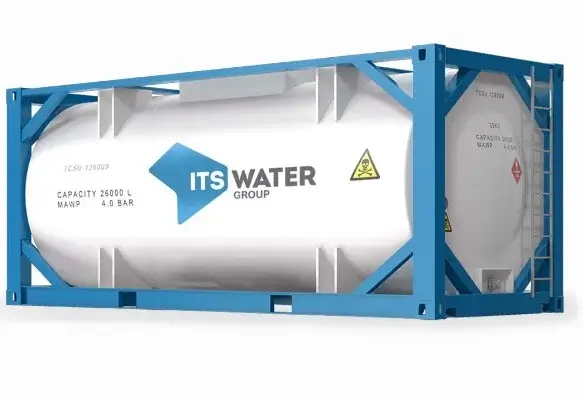Hydrochloric acid is a widely used chemical that was discovered back in 800 AD and is still successfully used in a variety of fields. Like many acids, it has highly corrosive properties, and is capable of corroding almost everything: from organic substances to plastic. In everyday life, it successfully fights scale and limescale, and in production it has found application in many fields: chemical, food, mining, construction, textile, pharmaceutical, leather, energy and many others.
In addition, hydrochloric acid is very widely used in industrial water treatment, since it is an excellent pH corrector and one of the safest antiseptics for the environment.
Properties and production ofhydrochloric acid
Hydrochloric acid is a chemical compound of fluorine and an aqueous solution of chlorine, supplied in the form of a colorless liquid with acrid smell. It is a strong reagent in various chemical reactions and a catalyst for the synthesis of substances. The compound “smoke” when exposed to air, but is not explosive or flammable. Formula - HCl. Alternative names: hydrochloric acid, hydrochloric acid, hydrogen chloride, inhibited hydrochloric acid.
Hydrochloric acid is obtained in several ways, the most famous is by burning chlorine in hydrogen to release hydrogen chloride, which is dissolved in water. The result is a synthetic 33–36% substance.
Precautions when using hydrochloric acid
Hydrochloric acid (more details hydrochloric-acid) belongs to hazard class III. Because the substance is caustic and can cause severe burns to the skin, respiratory tract and eyes, it should be used with caution:
- respiratory protection with a respirator and eye protection should be worn, especially at high concentrations substances;
- protect the skin and body completely with protective clothing, gloves, shoes;
- rinse areas of the body thoroughly with water in case of accidental contact with the substance;
- for storage When using the reagent, it is recommended to use a secondary protective shell made of polypropylene;
- the room where the compound is stored must be well ventilated, and there should be no flammable substances, metals, or permanganates nearby.
Application ofhydrogen chloridein water preparation
Inhibited hydrochloric acid is used for the preparation water for industrial purposes, wastewater treatment from bacteria and is especially interesting for adjusting pH in water pipes and swimming pools.
Why is this important? The fact is that when the pH level increases or decreases (the norm is values in the range of 7.2–7.8), chlorinating substances stop working properly. If the pH is elevated, the water becomes cloudy as bacteria begin to actively grow in it. If it is lowered, the water becomes acidic, which means it can cause corrosion of equipment, destroy the pool lining, and cause discomfort for swimmers: burning eyes and skin irritation.
How to safely add hydrochloric acid to your pool
The following steps will allow you to balance the pH safely:
- Check the pH level with specialized equipment, such as pH testers.
- Wear protective equipment that fully protects the body. A mask or goggles will also be needed to protect against fumes and accidental splashes when you add the product.
- Carefully dilute the hydrochloric acid in a bucket in a 1/10 ratio. Acid must be poured into water, and not vice versa. And remember that the process of dissolving a substance is accompanied by a strong release of heat.
- Turn on the pool's forced filter, as the water must circulate.
- Slowly and carefully pour in the solution, distributing it along the edges of the pool.
- After 3-4 hours, test the pH level and, if necessary, repeat the procedure until optimal values are achieved.
This is just one example of the use of this substance. If precautions are taken, hydrochloric acid is an excellent means for preparing and purifying water, which, among other things, is attractive at an affordable price. You can purchase the solution and receive competent advice on its use on the website of the direct supplier.




